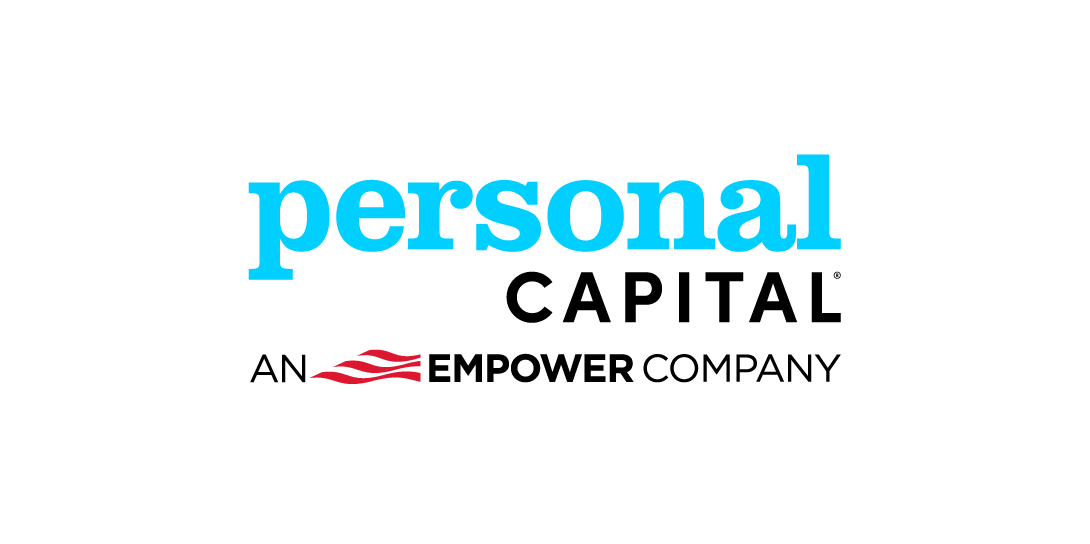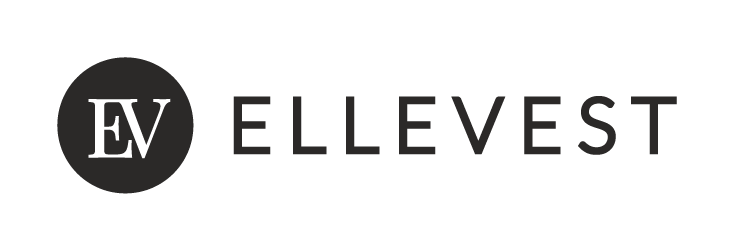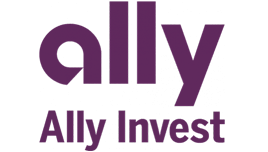Empower Review 2024
The Bankrate promise
At Bankrate we strive to help you make smarter financial decisions. While we adhere to strict , this post may contain references to products from our partners. Here's an explanation for .
Empower: Best for
Formerly known as Personal Capital, Empower’s offerings are tailored to high-net-worth clients in search of more robust features than what some other robo advisors provide. In fact, Empower doesn’t consider itself a robo-advisor, instead referring to itself as a digital wealth manager. You’ll need a minimum of $100,000 just to open an investment account, but for the price, you’ll get access to human advisors who will work to create portfolios that fit your financial goals. You’ll also get the benefits of automatic tax-loss harvesting, a feature that’s not available at all robo-advisors. Still, Empower charges one of the highest fees in the industry that only slightly decreases once you hit the $3 million mark. Since the firm’s name change, the robo-advisor promises the same fees and a continuation of its advisory teams.
Empower’s costs are lower than that of a traditional advisor, but you’ll find similar levels of service if you work with human advisors at robos such as Schwab Intelligent Portfolios and Betterment at a significantly lower price.

We want to know what you think about Empower
Do you have experience with Empower? Let us know your thoughts.
Empower: In the details

- Higher-net-worth clients
- Tax-loss harvesting
- Portfolio construction

- Higher-net-worth clients
- Tax-loss harvesting
- Portfolio construction
Pros: Where Empower stands out
Three tiers of high-touch service
Empower offers three (somewhat confusingly named) tiers of service, depending on how much money you bring to the table, with a lower management fee and more perks at each level.
Here are some of the highlights at each tier:
- Investment services – The entry-level plan includes access to a team of financial advisors that can aid with financial planning and review your investments. You’ll receive a personalized portfolio using only ETFs, tax optimization (more below) and rebalancing. This tier is for accounts from $100,000-$250,000.
- Wealth management – In addition to the features in the first tier, the middle tier substitutes two dedicated advisors for the team of advisors and gives you access to specialists who can help with further decisions (such as insurance, stock options and compensation). Your portfolio can also include some individual stocks in place of ETFs. This tier is for accounts from $250,000-$1 million.
- Private client – Besides the features in prior tiers, you’ll have access to further wealth planning services (such as for estate and tax issues), access to private banking, and may have your portfolio constructed with individual bonds and private equity investments, subject to enough assets. The Private Client tier is for accounts starting at $1 million and up.
This range of services, especially at the high end, is typically not offered at other robo-advisors. In fact, not many robo-advisors offer access to human advisors as part of their standard package. But that’s part of the reason they’re called robo-advisors. They also don’t usually have such a large minimum to get started, and more typically require zero or just a few hundred dollars.
Access to human financial advisors
One of Empower’s strongest selling points is access to financial advisors, and here you’ll have a team or two dedicated advisors (depending on your service tier). Together, you’ll develop a personalized financial plan, with the advisor acting as your ongoing point of contact, answering your routine and not-so-routine questions.
A financial advisor is valuable, in particular, for two major reasons: the ability to answer those non-routine questions and concerns, and the ability to get you to stick to your financial plan when times get tough in the market. And these are the issues that Empower focuses on. In fact, its advisors are trained in behavioral coaching to help you maintain your discipline.
If a real coach can keep you to your plan during the hard times – when many investors sell their investments to avoid further loss and ultimately cost themselves gains later – then you may make back Empower’s hefty management fee and then some.
Sophisticated portfolio construction
Empower constructs portfolios using ETFs, its own selection of individual stocks, and at higher service tiers, bonds and private equity investments. The access to private equity is restricted to portfolios with more than $5 million in them, however, and it’s a novel feature among robo-advisors.
Regardless of which tier you’re in, you’ll get access to what Empower calls Smart Weighting. Think of this feature as a way to re-weight the holdings in your portfolio so that they deliver more return without taking on more risk. For example, in many traditional ETFs, the largest companies are weighted heavily, while small or medium companies are weighted less. This means you may be “over-indexed” (i.e. overexposed) to the largest stocks in the fund.
So Empower re-weights your portfolio to eliminate some of this overexposure that may not drive higher returns. It looks at your holdings by industry, style (growth vs. value investing, for example) and the size of the companies in the portfolio. Smart Weighting more equally weights these three factors to deliver better risk-adjusted returns, says Empower.
Empower creates socially responsible portfolios using the same methodology, too, and avoids the relatively pricey ETFs offering similar products. To create them, the robo-advisor analyzes rankings on ESG factors (environmental, social and governance) from third-party evaluator Sustainalytics. It picks the top scorers and then weights them according to its proprietary methodology, and then this basket is used for a portion of the U.S. stocks allocation.
Multi-pronged tax strategy
Empower uses three strategies to maximize your total returns: asset location, tax-loss harvesting and using tax-efficient securities.
By placing assets in the most tax-efficient location – taxable accounts versus tax-advantaged accounts such as an IRA – Empower estimates that it might increase returns by about 0.3 percent annually through this strategy.
Tax-loss harvesting is the practice of selling losing investments to offset the gains in others. It’s a smart way to lower your tax bill, and Empower estimates that you could add 0.2 – 0.4 percent to your annual returns.
Empower also uses more tax-efficient securities, with ETFs instead of mutual funds. That’s not novel among robo-advisors, but what is notable is that Empower may use at least dozens of individual stocks in portfolios at its higher service tiers. The use of stocks allows tax-loss harvesting to generate more savings, or what’s called stock-level tax-loss harvesting.
Stock-level tax-loss harvesting is a prominent feature of Wealthfront’s robo-advisor service, too.
A range of useful tools
Empower offers a large selection of tools to help you analyze your portfolio, see how much you might need in the future for a given expense, figure out your net worth and many more. It’s great for anyone to check out because even if you don’t become a client, you can use many of the tools, though Empower does offer other tools exclusively to clients.
Some of the tools available include a net worth calculator, which pulls in data from your linked financial accounts, as well as a savings planner and a budgeting tool. You’ll also have tools for retirement planning, education expenses, and calculating fees on your mutual funds.
If you’re a client, you’ll have a few extras, including a financial roadmap and personal strategy tools. You’ll also be able to analyze your employer-sponsored plan such as a 401(k) to see how it aligns with your personal strategy developed by the robo-advisor.
Cons: Where Empower could improve
Fee structure
There are just no two ways about it: Empower is expensive relative to the rest of the robo-advisor industry. Whereas the rest of the industry has rushed to make their services cheaper – even free in some cases – Empower seems comfortable charging more.
Now, to be sure, Empower charges less than a typical human financial advisor, where about 1 percent of your assets is a standard fee for service. And you’ll get that level of perks at Empower. Plus, the fee structure does decline as you bring more to the relationship.
If you’re in the robo-advisor’s first two service tiers, you’ll be charged an annual 0.89 percent of assets up to $1 million. So your first $100,000 will cost you about $890 annually, as will each subsequent $100,000 in your account, up to $1 million.
If you move up to the private client tier with assets above $1 million, your fees will begin to decline:
- Your first $3 million will be charged 0.79 percent annually
- The next $2 million are charged 0.69 percent annually
- The next $5 million are charged 0.59 percent annually
- Any amounts over $10 million are charged 0.49 percent annually
This tiered structure means that you’re paying the corresponding level of fees at each level until your assets surpass the next threshold. For example, if you brought in $4 million, you’d pay 0.79 percent on the first $3 million and then 0.69 percent on the next million.
At the entry-level tier, you’d still pay an advisory fee that’s more than twice that at a standard robo, where much of the industry sits at 0.25 percent (plus ETF fees of around 0.1 percent).
So you’ll have to decide whether the key benefits are worth the extra price you’d pay for them.
High account minimum
Perhaps the most obvious – and negative – way that Empower stands out from the robo-advisor pack is its high account minimum. It’s $100,000 just to get in the door. That minimum applies only to the investing account, not the cash management account.
For any investor just starting out, it’s going to be much more advantageous to begin with a lower-cost service that allows for a lower minimum balance and see how that works for you. You may well find that the cost-competitive option fits your needs just as well as Empower.
Cash management account
For such a high-end service, Empower’s cash management account – called Personal Cash – leaves something to be desired, at least for now. The account pays a level of interest that’s in line with what’s offered by leading online banks and is FDIC-insured up to $5 million through the robo-advisor’s partner banks.
The account has no minimum balance and you can make an unlimited number of transfers each month. You won’t get a debit card, though Empower says they’re working on it. The cash account is available to those who aren’t clients of the investing service, so you don’t need to meet the $100,000 minimum to start doing business with Empower.
This cash management account may be a nice adjunct to your investing account. However, with feature-rich cash management accounts at Betterment and Wealthfront, which also don’t require you to be an investing client to open one, it’s tough to recommend Empower’s account as standalone.
Review methodology
Empower customer reviews
Thank you for sharing your experience with Bankrate





















